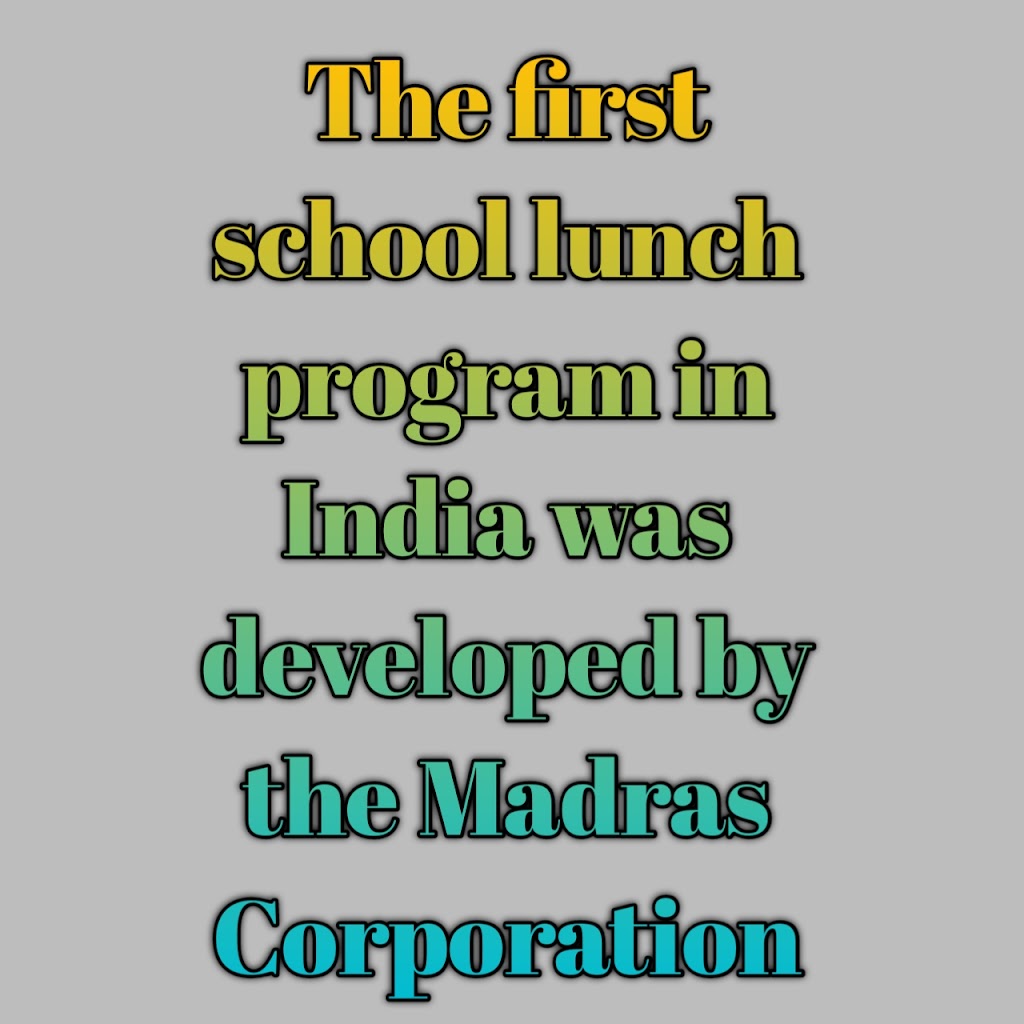The first school lunch program in India was developed by the Madras Corporation
Initiation of Lunch The first school lunch program in India was developed by the Madras Corporation in 1925. The first luncheon in India was started in 1982 in Tamil Nadu with the main message of social and national unity. While in Gujarat it was started on November 19, 1984. The mid-day meal scheme in India was launched on August 15, 1995. The scheme has been made ubiquitous since 2004 to give impetus to the Sarva Shiksha Abhiyan (SSA). Under this scheme, cooked, fresh, nutritious, healthy food is provided to the students as lunch in government educational centers.
As per the order of the Hon’ble Supreme Court, the mid-day meal scheme was made mandatory to provide meals to children at least 200 days in a year. Under which this scheme was started in government owned primary schools. The scheme is being implemented under the National Program of Nutrition Scheme of Education. The cost of the scheme will be borne by the Central Government and the State Government in the ratio of 75:25. Note: This ratio is 90:10 in the northeastern states. Lunch Objectives To solve the problem of malnutrition.
Enhancing the health and nutrition values of students. Encouraging dumb poor children to come to school. Increase attendance by reducing children’s dropout rates. Connecting social and national unity among children from an early age. To provide employment opportunities at the village level. Indirectly eradicating poverty from the state as well as the nation. Universalization of primary education as per latest NP, NSPE guideline.
Mid-day Meal Implementation Arrangements In the context of the State of Gujarat, the mid-day scheme is implemented by the Office of the Commissioner of Schools under the auspices of the Department of Education. The implementation chain of mid-day meal scheme from state level to school is as follows.
Community,Guardian,S.M.C. Provisions made for (1) It will be the responsibility of each parent to enroll their child in school and send them to school regularly. School Management Committee (S.M.C.) will be formed in the school, in which 3/4. Members will be the parents of the children. Weaker Section / Parents of backward class children will have participation in proportion to their number. 50% will be women. S.M.C, will oversee school functions. Will spend and also monitor the grant received. S.M.C. Will prepare a school development plan.
Provisions made for administration : The State shall provide schools for children at nearby places. It shall be the responsibility of the State Government to ensure that there is no discrimination against children on the basis of caste or gender and that there is no impediment to the completion of primary education. To make physical and human facilities available. Ensuring quality primary education. To provide training facility to teachers. Ensuring admission of migrated children.
The officer should monitor the school. Preparation of academic calendar. Curriculum and Assessment Process for Primary Education The curriculum and assessment process should be based on the values pertaining to the Constitution. Children develop holistically. Knowledge, intuition and competence are formed in children. There is scope for maximum development of mental and physical abilities of children. Learning – The teaching process will be based on the child’s activity.


best online thai pharmacy